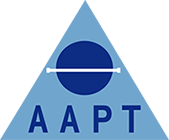News
The Impact of Mutual Aid on Regional Perinatal Pathology Services
Sarah Davis FAAPT presented an abstract at the Annual Educational Event 2025 in Bristol
Introduction
The West Midlands Perinatal Pathology Service, managed by Birmingham Women’s and Children’s NHS Foundation Trust (BWC), plays a critical role in supporting 14 referring trusts with hospital postmortems and pregnancy loss placenta examinations. Sarah Davis, Mortuary Manager, has led an analysis of the service’s transition to mutual aid due to significant staffing challenges, highlighting its effects on patient care, service delivery, and staff.
Service Context and Staffing Challenges
Since 2018, the service has experienced a marked decline in pathologist availability. In 2018, four consultant pathologists and five Anatomical Pathology Technologists (APTs) conducted 679 postmortems (PMs). By October 2022, this reduced to one consultant performing PMs, with another focused on histology, and 609 PMs completed. By October 2023, no pathologists were available on-site, dropping PM numbers to 589. In 2024, invasive PMs are outsourced to Mutual Aid Trusts, with external PMs performed at BWC, supported by two APTs, one Medical Assistant (MA), and maternity cover from the histology lab, resulting in 524 PMs.
Current staffing includes one pathologist visiting BWC monthly, two pathologists triaging PMs remotely from Hungary, and reliance on mutual aid. Birmingham Children’s Hospital (BCH) employs one locum pathologist, depends on other trusts for histology reporting, and conducts no PMs on-site. The region faces a critical gap, unable to train new pathologists due to the lack of on-site expertise. The ideal staffing model includes four pathologists at both BWC and BCH.
Effects on Service Delivery
The shift to mutual aid has yielded mixed outcomes. Positively, postmortems and placenta examinations are completed, eliminating backlogs, with an external company handling placenta histology at BWC. Patients receive results within the Royal College of Pathologists’ recommended 42–56-day timeframe, reducing distress and enabling timely follow-up care.
However, challenges include a 2–3 week turnaround for PMs, transportation of babies across England, and difficulties maintaining their condition. Compliance with Human Tissue Authority (HTA) standards has become a significant administrative burden, and BWC cannot offer coronial or forensic PMs. The current model is deemed unsustainable long-term due to competing demands at Mutual Aid Trusts.
Impact on Staff
Staff have adapted by managing the service and developing new skills to meet evolving workloads, supported by departmental and senior management. However, the reduced involvement in invasive PMs has led to deskilling, exacerbated by the absence of on-site pathologists and challenges covering maternity leave without locum support.
Future Directions
To address these issues, a National Service Review is proposed, alongside initiatives to train new pathologists and redefine the APT role. Maintaining high-quality service delivery remains a priority for BWC’s patient-centered approach.
Conclusion
The use of mutual aid has ensured continuity of perinatal pathology services amidst staffing shortages, but it presents significant operational and training challenges. Ongoing collaboration with supporting trusts—such as Alder Hey, Manchester Children’s, and Addenbrooke’s—and organisations like NHS England and the HTA is essential.
